Trayvon Martin and the Children of Iraq (and Syria, and Gaza, and Central America)
Devra Torres | Aug 11, 2014
Remember when Trayvon Martin was shot, and President Obama said that if he’d had a son, he’d look like Trayvon?
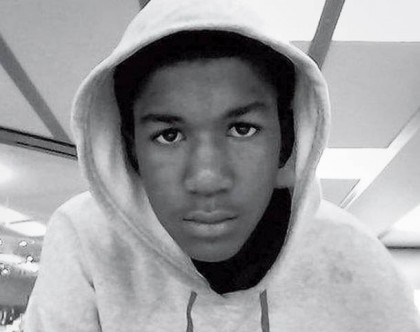
At the time, I confined myself to assessing the President's sincerity, or lack thereof. I can’t give him, or any politician, the benefit of the doubt. I can't assume he just happened to be voicing a genuine, spontaneous feeling of personal connection that just happened to benefit one particular side of a hot-button current-events battle.
But what about that kind of thing? I don’t think it should be dismissed reflexively. It can be used as a tool to manipulate a sentimental populace, certainly, but that’s not its only possible meaning.
I’m Jewish and my husband’s Hispanic; we both have more Mediterranean blood than you’d think by looking at us (see profile pic above). And I keep running into pictures of little children who look like our little children, or like our older ones did when they were little.
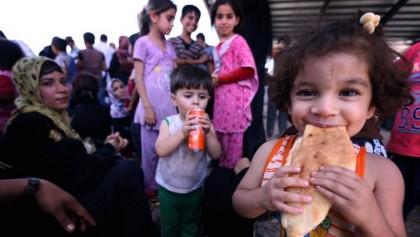
I see pictures from the southern US border, from Gaza, from Iraq and Syria. It shocks me awake and reminds me that this is not just happening to generic victims, as if there were such a thing, but to particular persons.
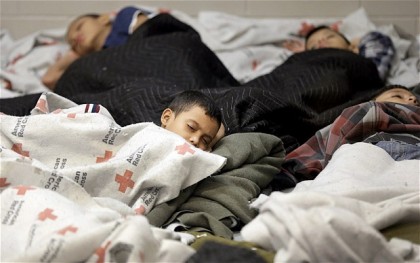
Years ago, as a new mother, I was bowled over by something that had never occurred to me before: everybody was somebody’s baby. I was suddenly able to see people as themselves. Especially if they had Down Syndrome, or some deformity, or were having a hard time in some way, I was able to look upon them with more sympathy, thinking “That could be my son, my daughter”—less able to dismiss anybody as a “type,” a specimen.
And this was a step in the direction of truth, not the kind of sentimentalism that removes us from it.

As T. S. Elliot said, “Humankind cannot bear very much reality.” One way to avoid a reality overdose during "interesting times" is not so much by outright neglecting or dehumanizing the victims, but by “genericizing” them.
Maybe that’s an understandable defense mechanism, but it’s a good thing to be startled back into reality by a resemblance. If nothing else, it can move us to pray harder, or to offer some other kind of real help. A face catches the attention, pulls someone out of the ever-present anonymous crowd whose problems we have no power to fix and whom we end up uneasily ignoring. After all, what’s the point of feeling bad if you can’t do anything? We're a can-do country; we're at a loss if there's nothing obvious to be done. Especially by all us non-politicians.
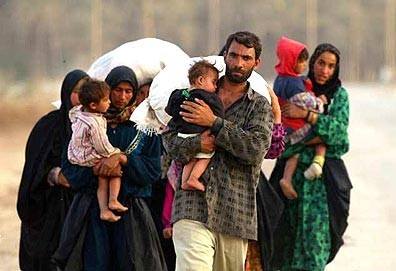
I'm not saying I should change my principles because of a sentimental response to a photo, or a sentimental connection to a particular kind of plight. That's a politician's easy out (I was against gay marriage until my son came out; I was against abortion until my best friend "needed" one.) If your principles make sense, they don't bend under the weight of real-life stories.
I still don’t think we should abolish borders and national sovereignty (though I do agree with Al Kresta that “borders are important but secondary to the wellbeing of persons.”) I still don’t think Israel should let Hamas build its terrorist tunnels in peace. And if I’m in favor of helping the suffering people of Iraq, it’s not just because one of their kids looked to me like one of mine.
But when you see a picture of a wounded Iraqi or Syrian or Palestinian child, or a helpless toddler sleeping on the floor in a Texas detention center, take a minute to make sure you rise above both possible knee-jerk reactions.
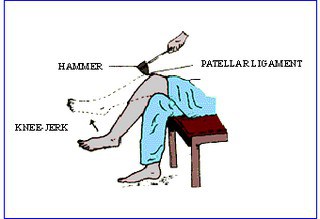
One trap would be to assume that anyone who cares about that child pictured must agree with the solution--the particular government policy--favored by the one showing you the picture. (Look at this suffering child--et's forget about borders altogether! Look at that one--let's take all Hamas' claims as face value!)
But the other, equally reflexive, is to turn away from the child pictured--to harden your heart against the person himself--as if he were the enemy. You can start to see him less as a person than as a symbol, a piece of enemy propoganda.
It doesn't really matter if a child looks like my son or not. But if he does, and that helps me keep his personhood in mind, so much the better.
